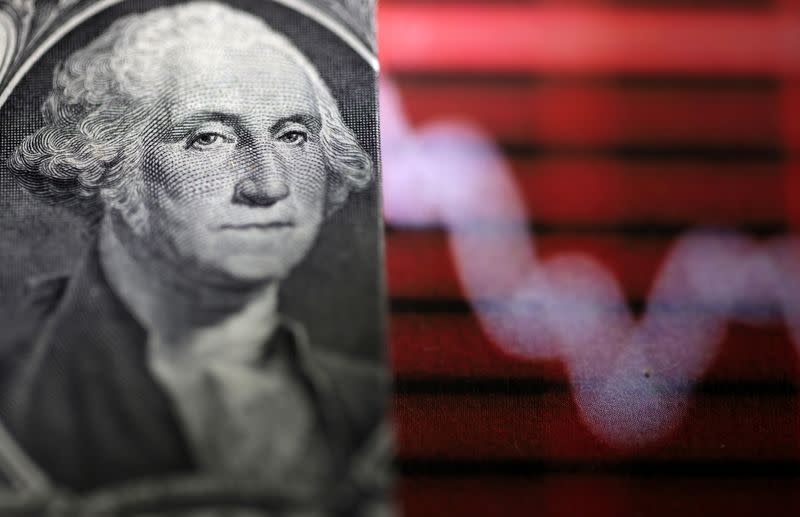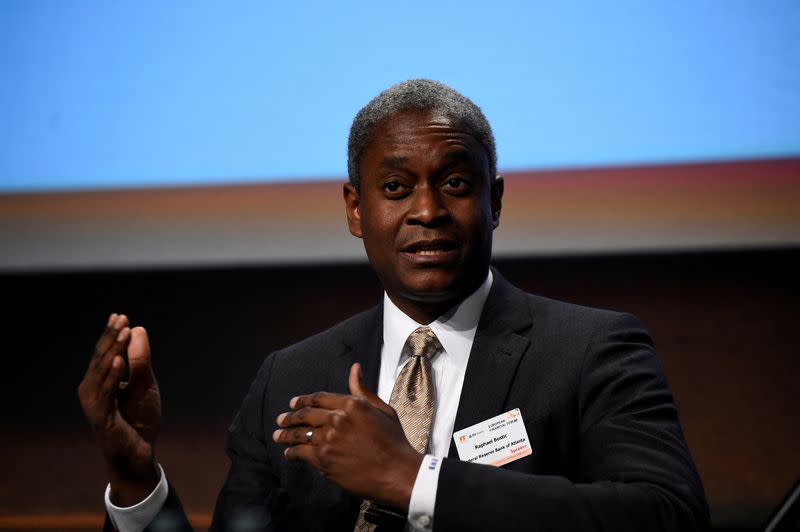Fed's Bostic backs 75-basis-point hike in November, smaller rise in December
By Howard Schneider
WASHINGTON (Reuters) - The lack of clear progress on inflation means the Federal Reserve needs "moderately restrictive" interest rates that should reach a level between 4.25% and 4.50% by the end of this year, Atlanta Fed President Raphael Bostic said on Wednesday.
"Inflation is still high ... and it is not moving with enough speed back down to our 2% target," Bostic said in a conference call from Atlanta, adding that his baseline outlook is for the U.S. central bank to hike rates by three-quarters of a percentage point at its November policy meeting and by half a percentage point at the December gathering.
That puts Bostic at the median of his colleagues who projected last week that they would need to lift the Fed's target policy rate an additional 1.25 percentage points at the two remaining meetings this year. That rate is currently in a range of 3.00% to 3.25%.
Recent overseas events, Bostic said, including a crash in the value of the British pound and an emergency return to bond-buying by the Bank of England, had not yet influenced his views on appropriate Fed policy or raised a risk of economic contagion in the United States.
U.S. Treasury markets showed no evidence of dysfunction, he said, and the economy's "considerable momentum," particularly its strong job market, "suggest it is less likely that contagion would play out."
Markets tied to the federal funds rate, however, have wavered in recent days as events overseas rattled investors, a U.S. equities sell-off continued, and economists said risks of a global recession were rising.
Traders on Wednesday put less than even odds on the prospect of the Fed getting its policy rate to the 4.25%-4.50% range cited by Bostic and other officials by year's end.
Bostic did say there were signs U.S. demand had begun to cool, a precursor in his view to falling inflation, and if that happens fast enough "the less we will have to do" with interest rates.
Housing "has definitely cooled" under the pressure of rising mortgage interest rates, he said, adding that businesses in his district "noted a steep decline in demand for consumer discretionary products," a sign consumers may be tightening their belts. As well, "a growing chorus" of executives report it is getting easier to hire workers, Bostic said.
If those trends continue it could provide a clue that inflation will turn lower, and give the Fed a reason to halt its rate hikes.
"I would expect growth to be below trend, we would start to see demand for a wider range of products start to soften, and we would start to see labor markets start to be more rationalized," Bostic said, with few job openings and slower wage growth. If that begins to happen, it will be a sign that ... "we should contemplate stopping and holding at that level."
(Reporting by Howard Schneider; Editing by Paul Simao)

 Yahoo Finance
Yahoo Finance 

